In our brand new interview series, we are interviewing various individuals from across the web. This interview series focuses on how they are living a better life. They can be living a better life by pursuing financial independence, minimalism, simplicity, and many more aspects. Are you interested in being interviewed? Continue reading!
Want to be interviewed?
If you want to be interviewed about how you are living a better life. Contact us at TimLifeForTheBetter@gmail.com and tell us why you’d be a great candidate!

Today We Have Savvy History!
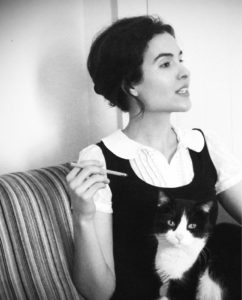 Give us your best elevator speech!
Give us your best elevator speech!
I’m Michelle from the blog (and band) Savvy History. I specialize in taking true stories from the past – full of depravity, folly, and vice – and presenting them as songs. I also love to discuss our past and future finances (not on stage of course). I believe independent musicians (and teachers) can be savvy with money.
In addition, I have formally and informally studied the creative process along with the mental health needs of individuals with high potential. Needless to say, I am excited about the under-explored connection FI has to creative psychology.
The other half of Savvy History is my husband Adam. He is a bassist and a sound technician with a far more interesting musical past than me, but that’s a story for him to tell if he wants to. In terms of our finances, he has remodeled homes and has a lot of creative DIY hacks.
How are you living a better life than you were last year? 5 years ago? 10?
Last year at this time, I was pregnant and working at a school about to close down due to low enrollment. Adam was also facing instability as a programming tech at the local college. With so many unknowns, our love of side-hustles and frugal living was reinforced.
Our life is better now because both of us have regained stability in our work, paid off the house, and added a substantial amount to our savings. The experience last year left us with many exciting entrepreneurial ideas and money-saving habits. In addition, this year we have established new routines as a family with a happy 8-month old boy.
Five years ago, we were remodeling a home from top to bottom. We bought the property because it was a foreclosure we could pay off right away (I discuss this more in my article He Laughed When I Bought My Clothes with Loose Change). We were really enjoying our social life and embracing our progressive small town after moving back from Austin, TX. I was gravitating away from playing music full-time because I didn’t want to leave awesome people or local events to go play shows. As a result, I went back to college to study gifted psychology and education.
Our life is better now because neither of us has to travel for work, and we like our daily schedule. We have finished remodeling another home in a beautiful hilly neighborhood, and we can both see where we work from our living room window.
Ten years ago, we were a new couple in our early 20s who had just moved on a whim from the Midwest to Austin, TX. Adam was processing his music industry experience and realizing he didn’t want to spend his life in a van full of guys or schmoozing with record label people. His dreams involved organic farming, getting off the grid, and creating everything we needed in a self-reliant manner. I was making my third album with his assistance.
Our life is better now because we don’t put as much pressure on our creativity (financially or psychologically). We’ve also gained a lot of skills with our self-reliant approach to life – making us faster and more efficient DIY problem solvers.
What would you tell your younger self?
Someday your diverse experiences will make more sense to you, and they will help you be a good friend to yourself and others.
I would also tell my younger self to chill out about perfect grades and instead put more energy toward developing unique ideas. Then I would tell her, “If you can’t bring yourself get over the vanity metric of perfect grades then at least understand scholarships.” I made some big money mistakes in that area as a first-generation college student.
After that, I would tell my younger self to stop putting away money in CDs and instead invest in Roth IRAs. I didn’t know you could take out money for a down payment on your first home or pay for college using a Roth.
Lastly, I would say it’s exciting to have a lot of career changes as long as you have the mental strength to transition well (and the creativity to connect the experiences meaningfully).
What made you want to change the way you were living?
Adam and I have the experience of achieving what we wanted at a young age only to realize we didn’t want it. There are a lot of stories about people striving to become full-time musicians, but here is a story about two people who transitioned from night clubs to writing history songs on their deck.
It took us a while to realize how important lifestyle design is when choosing a profession. Adam and I both loved music so we became musicians (only to realize touring and being in front of crowds didn’t fit our personalities well). Now we wake up and get to work on our passions right away. As musicians, shows wouldn’t start until 10:00 pm sometimes! While doable in our 20s, we both saw our 30s coming and thought, “No way, this won’t work.”
In addition, we changed because we both wanted to feel like we were using our skills to help people in a more direct way. Musicians obviously impact others enormously, but what we were doing before felt too abstract for us. Now we have focus, purpose, and daily enjoyment in our schedule.
Does financial independence play a role? If so, how?
Yes. While only 1/3 of our way there, it has given us a term and a social network for money beliefs we’ve long held but felt lonely having (I discuss this more in my article 6 Reasons Why Jealousy Isn’t Prominent in the FI Community). We found out about FI while Googling whether or not we should invest money or live mortgage free. We realized we had a lot in place (saving almost half of our income, investing in Roth IRAs, etc.), but the community has given us more focus and more tools to refine our vision.
Luckily, we have always been on the same page about building, designing, and creating as many items as we possibly can in order to live a debt free life. If we can’t create it, then we think about buying it used. Of course, there are still items we have to buy new, but we scrutinize each purchase and actually enjoy this process.
What advice do you have for others in living a better life?
Certain demographics of people need different advice at different times throughout their lives. I would suggest realizing this early on and being flexible with all the information available today.
I am specifically interested in helping high-achieving creative individuals and people with high systemizing capabilities. They know they can easily achieve traditional success, but are often curious about exploring, inventing new things, and living in a non-traditional way. Sometimes this makes navigating relationships and careers difficult. When this demographic of people struggle with being true to themselves, I like to help them find The Theory of Positive Disintegration developed by Kazimierz Dabrowski (a contemporary of Abraham Maslow’s).
This is a theory that can help them understand their obsessiveness, their drive for freedom, their idealism, and their frustration existing in a backward society. I found it to be an eye-opening theory in regards to money and artists (and therefore spent a lot of time formally and independently studying it).
I also have a really simple suggestion for a better life – take a walk outside each day no matter what the weather is.
What books/podcasts/blogs have you consumed that lead you to this point?
Concerning Positive Disintegration (the theory mentioned above), the best and most straightforward book I have found about it is called “Living With Intensity: Understanding the Sensitivity, Excitability, and Emotional Development of Gifted Children, Adolescents, and Adults” by Michael Marian Piechowski and Susan Daniels.
“NeuroTribes: The Legacy of Autism and the Future of Neurodiversity” by Steve Silberman is a great read if you are interested in people who gather over passions and narrow interests. It’s a great book for history lovers too (even if you aren’t interested in autism).
“A Short History of Nearly Everything” by Bill Bryson is an amazing read for history lovers, science lovers, and anyone seeking humorous feelings of awe. I read it while pregnant in order to reconnect with wonder about the world.
More specific to money, I listen to podcasts daily while walking our dog Linus. These stick out right now, but I could go on and on:
ChooseFI with Brad Barrett and Jonathan Mendonsa
Beyond the Dollar with Garret Philbin & Sarah Li Cain
Marriage, Kids and Money with Andy Hill
The Fairer Cents with Tanja Hester and Kara Perez
Fire Drill with Gwen and J
So Money with Farnoosh Torabi
The Side Hustle Show with Nick Loper
What’s Up Next with Paul Thompson and Doc G
Financial Independence Podcast with Mad Fientist
Afford Anything with Paula Pant
Journey to Launch with Jamila Souffrant
Side Hustle School with Chris Guillebeau
Freakonomics Radio with Stephen Dubner and Steven Levit
How I Built This with Guy Raz (Adam recently pointed out to me how show after show many of these people were willing to go into debt for their ideas. It’s just something to think about if you’re like me and really conservative with your money).
What’s one area in your life you still struggle with?
Niching down as a writer and a business. Sometimes I think I can create a niche by merging my interests (for example, I did this with teaching, bibliotherapy, history, and music). Trying to add a personal finance blog to all of this while addressing gifted psychology may be a little insane! However, it’s what I’m intensely interested in, and I think it offers something to the FI community, so I’m going with it for now. Money is a common thread that can be connected to everything Adam and I are passionate about (remodeling houses, DIY living, systemizing, multipotentiality, etc.).
If you had to give just 1 tip that you’ve learned along your journey, what would it be and why?
Community matters. Both online and off, life is built out of the voices we surround ourselves with. In fact, those voices and relationships often morph into one voice and become the way we speak to ourselves in our own mind.
Adam and I put a lot of thought into what town we settled in and who we hang out with. We are both sensitive sponges to our environment. We made an awesome choice and have been exposed to some very interesting people and life-long friends in a beautiful location in the Midwest.
Where can readers get in touch with you?
https://twitter.com/savvyhistory
https://www.instagram.com/savvyhistory/
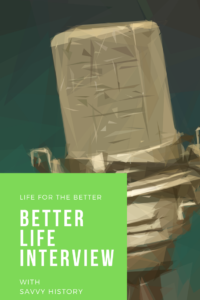 Check out other interviews here!
Check out other interviews here!
Follow Our Journey At
We use Personal Capital to track our net worth. We simply connect our assets and it tracks everything for us! Our net worth, cash flow, budget, investment fees, retirement planner, and more are tracked through this site. It’s completely free too! Sign up for free and receive $20 when you open an account!
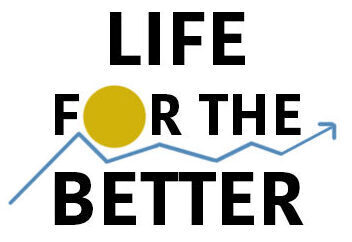
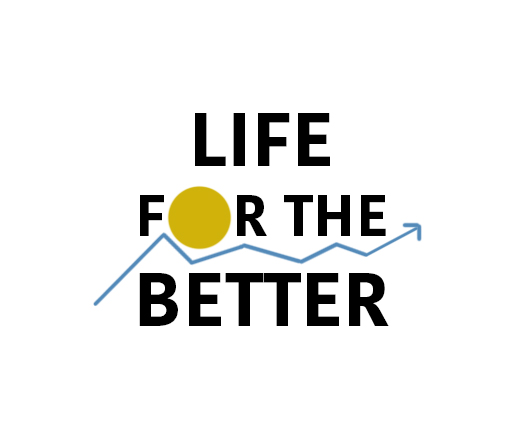
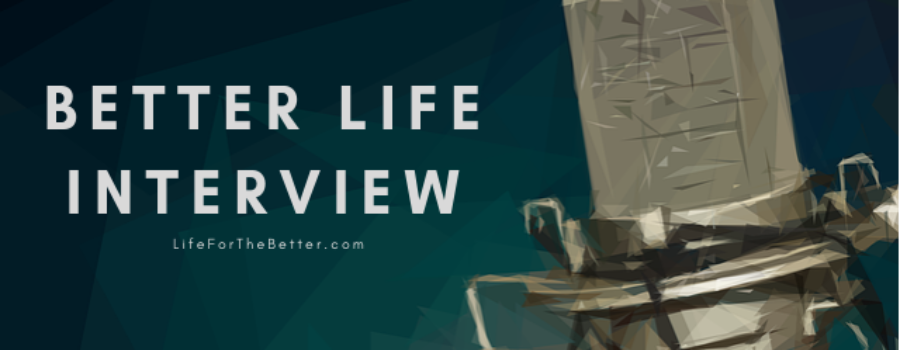
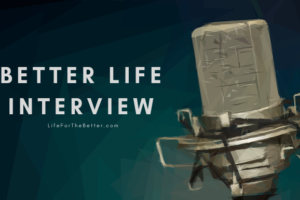
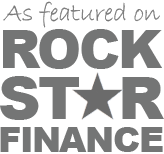
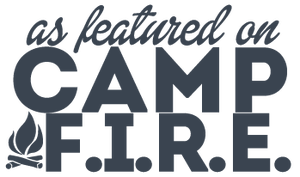
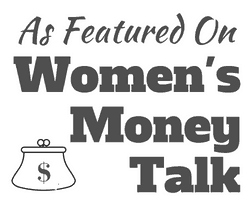
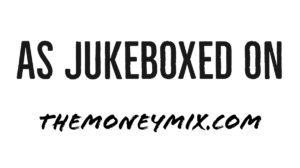
Great interview. I learn even more about Michelle from this compared to the questions I asked her on my interview. Keep up the good work!
Thank you for the kind words Deanna! Your interview: https://www.msfiology.com/2019/02/14/creative-featuring-michelle-from-savvy-history/ was equally as good! I think Michelle is the true hero in all of this 🙂
I might have been trying to write yours with my son around:)? I think there are so many angles and approaches with people in the personal finance space. So many layers to peel off and reveal too!